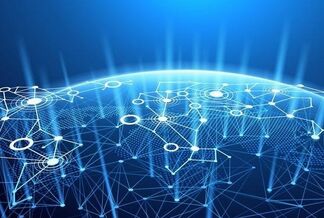Learning-based Capabilities
How organisations should use their learning functions
EY Talent and Henley Business School have come together to host a programme of work to examine how increasing skills across the UK economy can drive growth, for the economy, organisations, and individuals.
Change has been the intrinsic driver of progress and evolution for millions of years. Heraclitus argued that stability is an illusion and saw the world as “eternal change of/as/is everything”, in essence, “everything flows” (panta rei). What has changed in today’s reality of impermanence is the accelerated speed and improbable nature of that change, challenging organisational capacity for finding adequate solutions. While organisations are trying to identify the skills and competencies critical for their journey to recovery, emerging evidence points to a common denominator in early success stories – organisational dexterity in adaptive learning to quickly sense and size opportunities and recombine its resources for value creation as well as value protection.
Learning-based capabilities – the new ‘holy grail’ of competitiveness
Not long ago, critical competitive advantages belonged to individuals, organisations and nations who knew the most. The speed and impermanence of technology advancements and global environment are shifting the balance of power in favour of the learning economy. Competitive advantages ensuring survival and progress accrue to those who know how to learn the right things, rapidly.
Building learning-based capabilities in times of major disruption, like the current pandemic, can be a powerful tool in unlocking the existing potential in the organisation. Acknowledging that prior knowledge may not be relevant or sufficient removes the inhibition by knowledge (power) centres and encourages confidence in proactive solution finding at all levels of the organisation. Reframing ‘failures’ as ‘learnings’ removes the fear of being judged and focuses attention towards solving problems. Redefining ‘outliers’ as ‘visionaries’ removes the stigma of not-belonging and leverages diversity as an engine of learning and creativity. The ’learning organization’ can empower and engage its employees in value creation rather than just direct and manage their performance.
The biggest challenge to building learning-based competencies in the context of homeworking is a lack of social interaction. Humans learn best through experience in a social context where peer-to- peer interaction provides immersive learning. This is particularly true for learning skills and behaviours, as unlike knowledge they are tacit in nature and hence difficult to codify and transfer. Immersive experiential learning is challenging in the virtual world. However, attending meetings, brainstorming sessions, client interactions are now more shareable than ever. Virtual ‘townhall’, ’fire-chat’ and ‘watercooler’ meetings, are examples of informal events proven to provide the social context that fosters exchange of experiences, learning and collaboration and reinforces the feelings of community and common values and goals.
However, building organisational capacity for a skills-led recovery requires a well-designed agile learning strategy and structure. To better understand what this entails let’s look through the two lenses of learning: content (what to learn), and process (how to learn). Knowledge and learning platforms powered by AI and mobile technology make both internal and external knowledge (content) available on demand and just-in-time. What makes the learning capabilities the holy grail of recovery and competitiveness is the effectiveness of the learning process – how the organisation is set up to motivate, enable and harness learning.
Towards new horizons
If necessity is the mother of both learning and invention, there is no bigger learning activator in recent history than the current pandemic. Organisations and their employees are more than ever motivated to learn not just how to deliver their old mandate in a new context but more so in finding new ways of delivery and even new mandates. Organisations’ ability to adapt their ‘know how to’ to ‘learn how to’ would build resilience in keeping their ship afloat and increase their odds of seeing the sun rise over new horizons.


